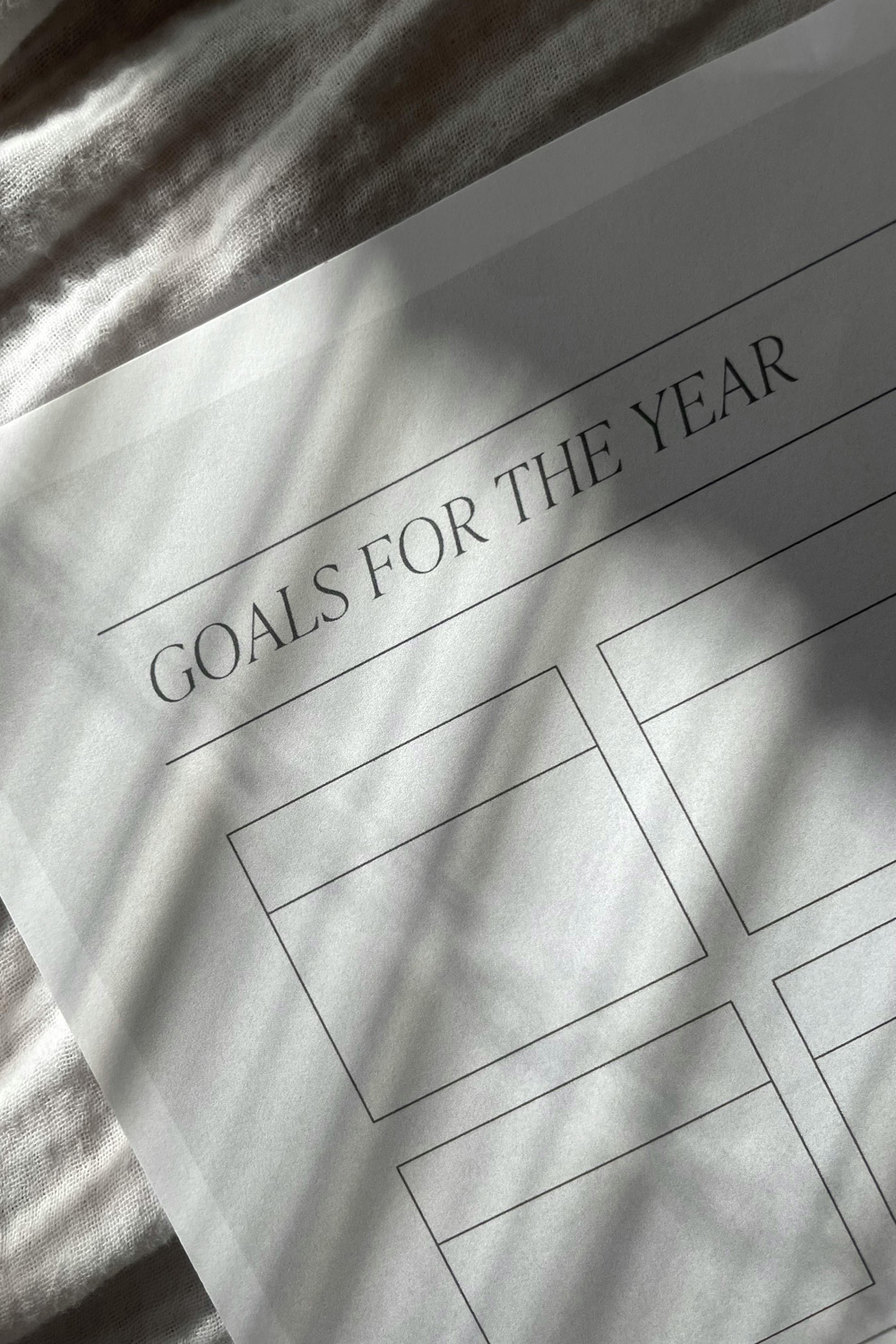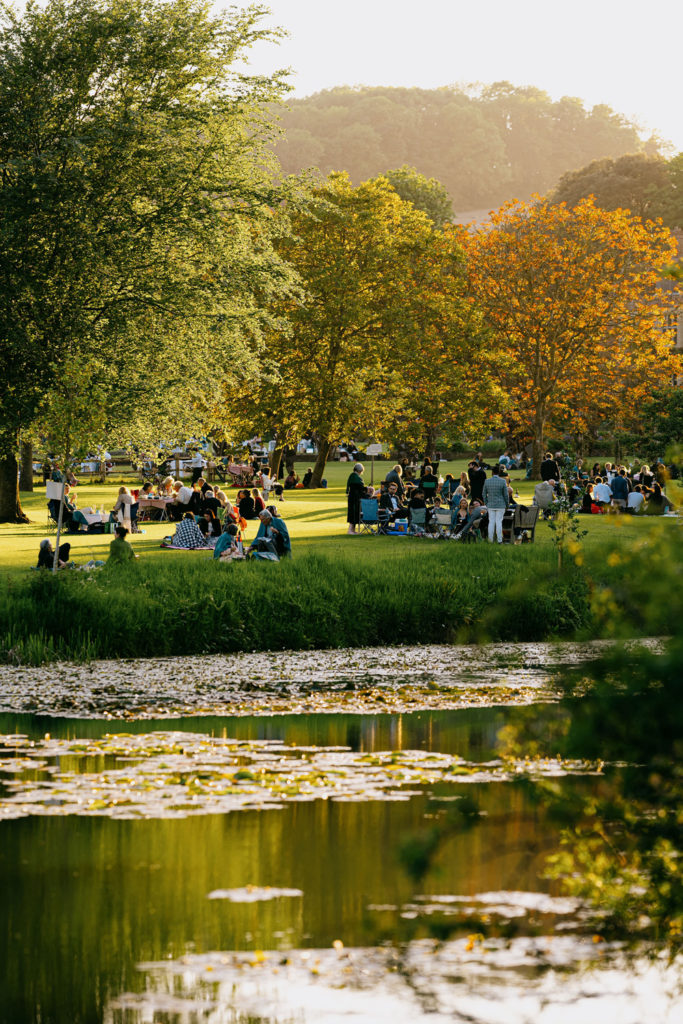
New Year’s Resolution Ideas For 2025
By
4 months ago
Plus: how good are we at actually sticking to them?
The year is winding down, and while Twixmas is typically filled with feasting, films and family time, you might also find yourself brainstorming your New Year’s resolutions. Here’s the theory behind the popular custom – plus some ideas for 2025.
What Is A New Year’s Resolution?
A New Year’s resolution is a decision to do – or refrain from doing – something over the course of the coming year. Typically, resolutions are set to continue good practices (for example, journaling, training at the gym), change any undesirable traits and behaviours (smoking, drinking, vaping), meet a personal goal (run a marathon) or otherwise improve yourself.
While they seem an incredibly modern practice – especially in a world where bettering yourself is a constant trend – setting New Year’s resolutions can be traced back to the Babylonians, around 2000 BCE. At the New Year, they would celebrate a 12 day festival called Akitu, which marked the start of the farming season and the crowning of the king. As people planted their crops, they would use equipment borrowed from the king and resolve to return it – as well as pay their debts. Enjoying this idea of newness and resolution, the ancient Romans copied the practice, and began each New Year by praying and making promises to the god Janus (fittingly the god of beginnings, transitions, gates, time and more – and the god for which January is named).
While not directly related, other parallels can be found throughout history: medieval knights would take the ‘peacock vow’ at the end of the Christmas season to re-affirm their chivalrous commitments, while resolutions for self-improvement are common in Christianity and Judaism.
That said, we’ve also struggled to stick to our resolutions for hundreds of years. Satire about people lapsing in their resolutions dates back to the beginning of the 19th century (and we’re sure verbal joshing dates back even further). On 1 January 1813, for example, a Boston newspaper published an article titled ‘The Friday Lecture’ by an anonymous author, commenting on the phenomenon:
‘I believe there are multitudes of people, accustomed to receive injunctions of new year resolutions, who will sin all the month of December, with a serious determination of beginning the new year with new resolutions and new behaviour, and with the full belief that they shall thus expiate and wipe away all their former faults.’
Have we even changed at all?
How Many People Start Their New Year’s Resolution?
According to YouGov, 27 percent of Brits intend to make a New Year’s resolution for 2025. Younger Brits are more likely to take part in the practice, with 52 percent of 18–24 year olds committing to a promise. In contrast, only 16 percent of over-55s are interested.
The UK’s Most Popular New Year’s Resolutions 2025
Money is front of mind in the UK when it comes to New Year’s resolutions. YouGov found that 29 percent of those making a resolution will make a financial one, with more than 20 percent of Brits pledging to save more or spend less money in 2025, compared to only 4 percent intending to earn more, 4 percent promising to invest more, 3 percent hoping to better their financial management and 2 percent resolving to reduce their debt. Looking at age, 40 percent of Gen Z will make finance-related resolutions.
Next up, health and fitness: in total, 39 percent of resolutions are tied to health, with 52 percent of the Gen Xers (mid-40s to late 50s) making resolutions committing to their health. Seventeen percent of Brits are making resolutions to get fit and exercise more, while 16 percent want to lose weight, 7 percent generally want to improve their health and 5 percent are promising to eat more healthily. Tangential to this are the 2 percent of Brits intending to drink less alcohol or quit smoking or vaping, while a further 1 percent of Brits want to improve their mental health in 2025.
Other popular resolutions for 2025 include gaining new skills and knowledge (7 percent), personality and attitude adjustments (5 percent), improving relationships with friends and family (5 percent), travelling (3 percent), bettering time management (2 percent) and reading more (2 percent).
What Percent Of New Year’s Resolutions Fail?
YouGov also asked its respondents if they made a 2024 resolution and if so whether they achieved it. Of the 17 percent of respondents who made a New Year’s resolution in 2024, one in three claim to have kept their promises, while one in five admit to failing. Meanwhile, 45 percent of the group kept some – but not all – of their resolutions.
This lines up with previous YouGov data: in 2017, the organisation found that by 6 January one in five Brits had already failed their resolutions.
How To Write A New Year’s Resolution
If you want to make – and stick to – a New Year’s resolution, it’s not as simple as plucking a desirable attribute out of thin air and running with it. The most successful resolutions are more like goals, and the below steps will help you craft the perfect one.
- Take stock of what you want or where you want to be. Think about the year just passed, everything you achieved and, perhaps more importantly, everything you fell short of.
- Break down your broad aspirations and find the achievable actions within them. If you’d like to be more mindful or at peace, for example, find the way you’d like to achieve this, whether it’s through journalling, meditation or something else.
- Be specific. There’s no use in resolving to ‘exercise more’. Try ‘exercise three times per week’ or pick a race to train for or a skill to attain, like doing a pull up.
- Make it measurable. For example, if you want to read more, set a (realistic) goal for the end of the year. If you want to save more money, set a goal for each month.
- Set a timeline. When do you want your goal to be achieved? It doesn’t have to be the end of the year: it could only take you a couple of months to do a pull up. What do you want to accomplish after that?
- Stay positive and ensure you choose a constructive resolution rather than a restrictive one. When it comes to healthy eating, for example, focus on what you want to achieve (more fruit, vegetables and nuts) rather than what you want to avoid.
New Year’s Resolution Ideas For 2025
- Exercise three times a week
- Read 12 books in 2025
- Cook more healthy meals at home – eg four nights a week
- Start composting
- Enrol in a language learning course
- Drive less, walk or cycle more
- Drink eight glasses of water daily
- Save £50 per month
- Meditate or practice mindfulness for 10 minutes a day
- Write birthday cards for loved ones instead of texting them
- Journal every other day
- Get at least seven hours of sleep every night
- Set social media limits
- Take up a new physical activity, like cycling or hiking
- Create a morning routine and stick to it
- Learn a new skill like cooking, coding, knitting or photography
- Plan one date night with your partner each month
- Make three new friends







